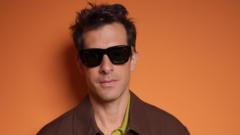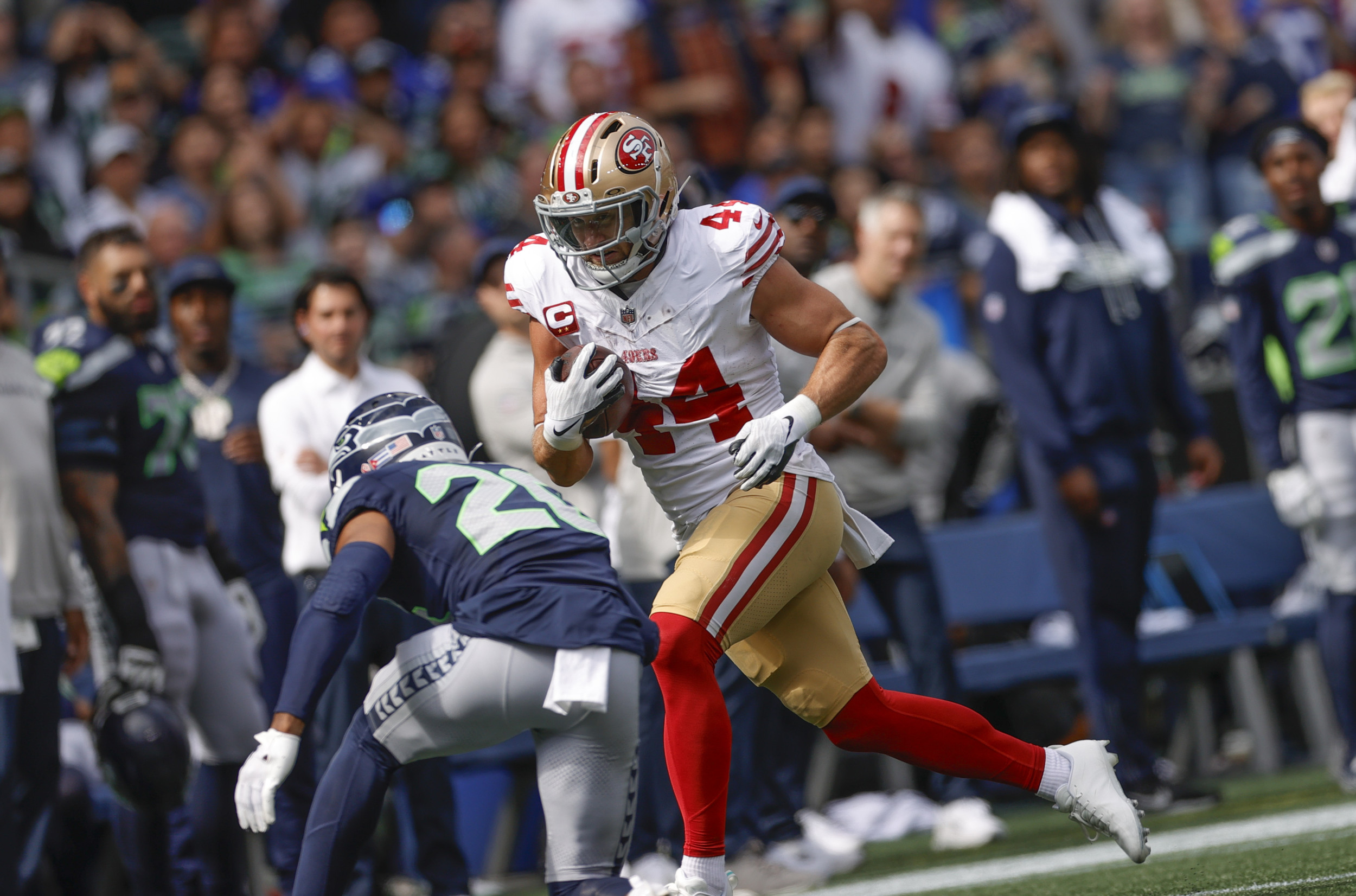Is Mark Ronson a Night Owl? Discover His Wild Encounter with Lady Gaga!

Published: 2025-09-16 01:50:45 | Category: technology
Mark Ronson's memoir, *Night People*, dives into his formative years as a DJ in the vibrant 1990s New York club scene, highlighting the music, the people, and the experiences that shaped his career. From awkward encounters with legends like Prince to the thrill of spinning records for A-list celebrities, Ronson's journey reflects both the highs and lows of nightlife. The book serves as a nostalgic homage to a transformative era in music and culture.
Last updated: 27 October 2023 (BST)
Key Takeaways
- Ronson's memoir captures the essence of the 1990s New York club scene.
- He navigated the complexities of DJing for high-profile clients, including Prince and Diddy.
- His upbringing in a creative environment influenced his career trajectory.
- Ronson's unflappability has been key to his success as a producer and DJ.
- The memoir reflects a personal journey of growth and self-discovery through music.
The Early Days of DJing
Mark Ronson’s DJ career began in the late 1990s, a time when New York's nightlife was buzzing with energy and innovation. This period was marked by a rich tapestry of artists and genres, from hip-hop to funk, making it a fertile ground for young talent. Ronson found himself at the centre of this cultural explosion, honing his skills and developing a unique style that would set him apart.
Spinning for Icons
One of the most memorable moments of Ronson's early career occurred in the summer of 1998 at the VIP bar, Spy, where he was set to DJ for the legendary Prince. As he prepared to drop Michael Jackson's *Don't Stop 'Til You Get Enough*, he was urgently interrupted by rapper Q-Tip, who reminded him of the historical rivalry between Jackson and Prince. This moment encapsulates the pressure of spinning for icons and the delicate balance a DJ must maintain in such high-stakes environments.
Embracing the Nightlife
Ronson's passion for nightlife was evident from the start. He describes himself as a "nocturnal animal," feeding off the energy of the crowd and responding to the unspoken cues of partygoers. His ability to read the room was almost instinctual, allowing him to curate experiences that resonated deeply with his audience. This skill was paramount in a scene where the right track could make or break a night.
Beyond the Turntables
While DJing was Ronson's initial claim to fame, his career trajectory expanded significantly as he transitioned into music production. This shift was not merely a career move; it was a reflection of his desire to control the creative process. His experiences in the DJ booth gave him insights into the needs and emotions of artists, shaping his approach to production.
Memorable Collaborations
Ronson's collaborations with artists like Lady Gaga and Amy Winehouse are pivotal moments in his career. Working with Winehouse on *Back to Black* was particularly transformative; he recalls how she brought a whirlwind of inspiration to the studio. Their synergy resulted in music that resonated with audiences worldwide, showcasing Ronson's ability to elevate an artist's vision while maintaining his own distinct sound.
From DJing to Production
Transitioning from DJing to music production allowed Ronson to expand his creative repertoire. He approached production with the same passion and precision he applied to his DJ sets. This blending of skills has led to a remarkable career, marked by chart-topping hits and critical acclaim. His ability to navigate the complexities of both roles has set him apart in the music industry.
A Personal Journey
In *Night People*, Ronson reflects on his upbringing in a household filled with creative energy. Born in London to a jewellery designer and a music publisher, he grew up surrounded by artists and musicians. These experiences shaped his understanding of the music industry and instilled in him a desire to create. However, his childhood was not without its challenges, leading him to find solace in the DJ booth.
The Influence of Family
Ronson's family life was a blend of creativity and chaos. He describes his parents' parties filled with artists and eccentric personalities, which fostered a unique perspective on life. Yet, the emotional turbulence he observed at home instilled a sense of watchfulness that influenced his career. DJing became a refuge, offering him control over his environment and a space to express himself fully.
The Need for Control
DJing fulfilled Ronson's "need for control" amidst the instability of his youth. The DJ booth provided a sense of security, where he could dictate the atmosphere and engage with the audience on his terms. This desire for control has been a driving force throughout his career, guiding his decisions as both a DJ and a producer.
The Evolution of Music in New York
Ronson's memoir serves as a time capsule of the New York music scene during a pivotal era. The 1990s represented a creative peak for hip-hop and R&B, with legendary acts like A Tribe Called Quest, Wu-Tang Clan, and Biggie Smalls dominating the clubs. Ronson's experiences offer insights into this vibrant culture, highlighting the interplay between music, nightlife, and community.
The Last Apex of Hip-Hop
Ronson argues that the 1990s marked the last time New York truly reigned as the epicentre of hip-hop culture, both creatively and commercially. He reflects on how artists were not just recording music but were living it, performing in clubs and shaping the scene with their presence. This era was not only about the music but also about the connections forged on the dance floor.
The Role of P Diddy
Another significant figure in Ronson's story is Sean Combs, known as P Diddy. Ronson credits Diddy with providing him opportunities that elevated his profile in the industry. Their interactions, though limited, underscored the dynamic nature of the music business, where relationships can change the course of a career. Recent allegations against Diddy have cast a shadow over his legacy, prompting Ronson to express his shock at the revelations.
Reflections on the Music Industry
As Ronson delves into his past, he provides a candid look at the music industry, exposing its seedy underbelly alongside its glitz and glamour. He reflects on the challenges faced by DJs, including the pressures to cater to the whims of club owners and audiences. These experiences shaped his understanding of the business and informed his approach to music production.
Navigating Challenges
Ronson recalls nights spent playing for minimal pay amidst demanding club owners who expected him to cater to mainstream tastes. His resilience during these formative years equipped him with the skills necessary to thrive in a competitive industry. The lessons learned from navigating difficult situations have been invaluable in his career, allowing him to maintain his artistic integrity while achieving commercial success.
The Future of Ronson's Memoir
As Ronson continues to explore his past, he hints at the possibility of a second volume of his memoir, focusing on his later successes. For now, *Night People* serves as a tribute to a bygone era, a love letter to the nightlife that shaped him and an exploration of the transformative power of music. His reflections offer readers a deeper understanding of the experiences that moulded him into the artist he is today.
FAQs
What inspired Mark Ronson to write *Night People*?
Mark Ronson was inspired to write *Night People* as a tribute to the vibrant 1990s New York club scene, reflecting on his experiences and the artists who influenced him. The memoir emerged after the death of his friend, DJ Blu Jemz, prompting Ronson to reminisce about their shared musical journey.
Who are some notable artists Mark Ronson has worked with?
Mark Ronson has collaborated with numerous high-profile artists, including Amy Winehouse, Lady Gaga, Bruno Mars, and Dua Lipa. His work spans various genres, showcasing his versatility and ability to create chart-topping hits.
What themes are explored in Ronson's memoir?
*Night People* explores themes of nostalgia, the evolution of nightlife, and the complexities of the music industry. It reflects on Ronson's personal journey, his upbringing, and how these factors shaped his career as a DJ and producer.
How did Ronson's upbringing influence his music career?
Growing up in a creative environment with frequent gatherings of artists and musicians influenced Ronson's understanding of music and culture. His childhood experiences instilled in him a desire to create and control his artistic space, leading him to pursue a career in music.
What impact did P Diddy have on Ronson's career?
P Diddy played a significant role in elevating Mark Ronson's career by hiring him for high-profile events and parties. Their relationship, though limited in conversation, provided Ronson with exposure and opportunities in the competitive music industry.
As the music industry continues to evolve, Ronson's reflections remind us of the power of creativity and the influence of personal experiences in shaping an artist's journey. What stories from your own past have shaped your passions? #MarkRonson #NightPeople #MusicMemoir



